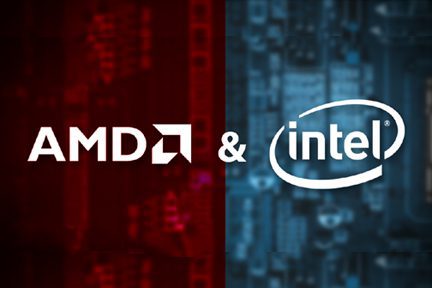AMD is a market darling at the moment, and Intel is in the doghouse primarily because it was unable to execute on an advanced manufacturing process that AMD was able to sort. Intel remains both the more powerful and the more profitable company, but its valuation has taken a pounding as a result.
AMD’s advantage is that the company has had stable management for nearly a decade, while Intel has been undergoing significant changes primarily due to some previous dubious decisions. (See Charles King’s July 30 article in eWEEK.)
Intel has since brought in Bob Swan as CEO, who has been systematically correcting Intel’s management and organizational issues. In addition, Intel added a superstar technologist to its board in Dion Weisler. He is known for turning HP around by addressing a set of issues very similar to what Intel is now facing.
I think it comes down to two things: focus and leadership.
Focus
Let’s start with focus. AMD had a focus issue in the early 2000s when its then-board thought the company should chase the tablet and smartphone market, even though it had no competence in there. AMD’s technology was performance rather than mobile-oriented. That distraction made it very hard for AMD to execute, and it wasn’t until AMD refocused on its core markets that it once again became a real force in the market.
Intel’s pivot was later, when it attempted to partner with Apple to take Qualcomm out. It was a gutsy move but also pretty foolish because Apple has a reputation of being very hard on partners—sometimes ending up with the partner’s technology when that company exits the market. That is pretty much what happened to Intel; Apple ended up with its technology, and Intel was forced to go back to focusing on what it did best. Still, the effort cost Intel the better part of a decade, allowing AMD to advance and become a far more credible competitor.
So much of that decision was wrong because the effort to challenge Qualcomm should have been led by a Qualcomm subject matter expert, not someone who had performed poorly in the segment previously. Because executive leadership didn’t understand the market, they had to cheat, got caught cheating and ended up having to exit the segment.
Thomas Watson Jr. left IBM with the advice: “Be willing to change everything but who you are.” Intel forgot who it was, and while current management is getting them back on track, that mistake will take awhile to mitigate.
Massive Layoffs
I’m not a fan of layoffs, mainly because they aren’t surgically precise—which means, like doing surgery with an ax, the collateral damage can often well exceed the likely benefit. What massive layoffs do is they disrupt working groups, make it more difficult for those who remain to work together and lower substantially the loyalty employees have for their employer.
My first personal experience with a massive layoff was at IBM, and the following day we discovered that we’d lost the ability to manufacture our most popular product. Even if you try to do layoffs from performance metrics, those metrics generally don’t showcase the unique benefits a seemingly underperforming employee may have on a team. People who may seem like dead weight are often the social members of a team who hold that team together, help mitigate disputes and, because they tend not to advance, have the history of past mistakes that can help a team avoid similar future mistakes.
After a layoff, people are fearful of cooperating. They will be somehow disadvantaged during the next layoff event and are far more likely to start spending a lot of time trying to find a more secure position. In his “Hierarchy of Needs,” psychologist Abraham Maslow highlighted employment as a base need that, when threatened, could significantly adversely impact performance.
The lack of focus, coupled with the sizable destructive layoff, would have made Intel meeting its 7nm goal more of a surprise than missing it, because the company had been crippled by prior management.
Wrapping Up
Sun Tzu, in “The Art of War,” wrote: “If you know the enemy and know yourself, you need not fear the result of a hundred battles. If you know yourself but not the enemy, for every victory gained you will also suffer a defeat. If you know neither the enemy nor yourself, you will succumb in every battle.”
When you lack focus and do massive layoffs, you will no longer know your capability—only that you’ve dramatically reduced it. Intel’s prior management landed the company into that undesirable last group. In contrast, AMD’s management stayed focused and clearly understood what they were up to concerning Intel landing them in the first group. Centuries ago, Sun Tzu pointed this out, and the recent financial reports from both firms are a showcase that Tzu was right.
Maybe the sustaining lesson here is that more executives should study Sun Tzu.
Rob Enderle is a principal at Enderle Group. He is a nationally recognized analyst and a longtime contributor to QuinStreet publications and Pund-IT.
